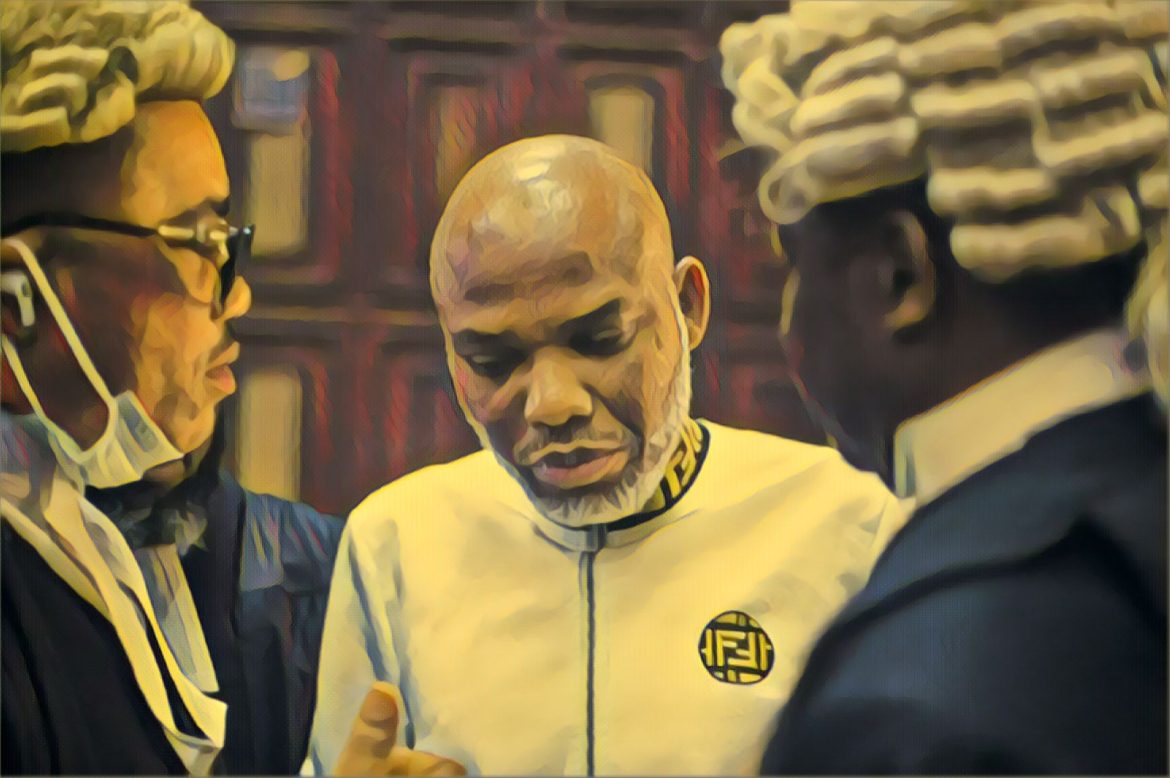KEY POINTS
- Kanu’s request for a new judge was rejected by the court.
- Justice Nyako will continue presiding over the case due to her long involvement.
- Kanu must file a formal motion to pursue further recusal.
The leader of the Indigenous People of Biafra (IPOB), Nnamdi Kanu, requested that his case be transferred to a different judge, but Justice John Tsoho, the Chief Judge of the Federal High Court, dismissed his motion.
Kanu had requested that Justice Binta Nyako, the presiding judge, step aside from his case because he is facing seven terrorism-related accusations from the Federal Government. At the hearing on September 24, Kanu asked for the reassignment, expressing a lack of trust in Justice Nyako.
In the beginning, Justice Nyako had consented to withdraw from the case, saying she would forward the file to the Chief Judge for reassignment.
After review, however, Justice Tsoho gave the case back to Justice Nyako, claiming that she was the most qualified judge to see the trial through to the end because she had been the one presiding over the case for the majority of its duration.
Justice Nyako to Continue Leading the Case
Since 2015, the Kanu case has been pending in the Federal High Court, making it a lengthy and intricate legal procedure. Because of what he perceives to be an unjust handling of the seven-count terrorism accusations brought by the Federal Government, Kanu lost faith in Justice Nyako.
Notwithstanding his reservations, Justice Tsoho stressed that because Justice Nyako has been actively involved in the matter for almost ten years, she is in the greatest position to handle it going forward.
Justice Tsoho noted in her explanation of the ruling that the case’s protracted duration was caused in part by the recusal of two judges prior to Justice Nyako.
Justice Tsoho emphasized the value of consistency in intricate legal proceedings, warning that additional judge changes could needlessly prolong the trial and impede its conclusion. He added that Justice Nyako is most qualified to supervise the case’s resolution because of his extensive knowledge of its specifics and complexities.
Next Steps for Kanu’s Legal Team
Kanu must submit a formal application for recusal if he wants to follow through on his desire for a different judge, Justice Tsoho clarified. An affidavit outlining the precise grounds for Kanu’s request must be included with this motion, which must be delivered in writing.
After reviewing the motion, Justice Nyako and the prosecution team will decide whether or not she would resign from the case.
Aloy Ejimakor, Kanu’s attorney, has attested that Kanu’s group is ready to take the required actions, such as submitting a formal request for recusal. The defense team is waiting for the court to formally notify them of the next steps, including the date of the upcoming hearing.
According to Punch, Ejimakor stated that while the plea for recusal would be carefully reviewed, the legal team is ready to proceed regardless of the outcome in order to guarantee Kanu what they believe to be a fair trial.
The court is thought to have acted to speed up the trial and prevent other delays by turning down Kanu’s original request to replace Justice Nyako.
The trial is one of the longest-running court cases in Nigeria, having previously lasted for a number of years. As the case moves closer to a conclusion, Justice Tsoho’s ruling aims to preserve uniformity and effectiveness.


